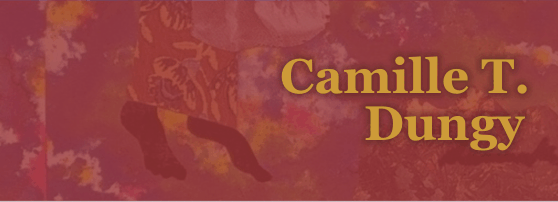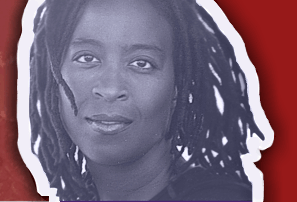| |
|
|
Black Nature: Four Centuries of African American Nature Poetry
Edited by Camille T. Dungy
University of Georgia Press, December 2009
Orionmagazine.org
Centuries of African-American poetry stand behind “Just imagine,” starting with Phyllis Wheatley’s 1773 “Imagination! Who can sing thy force!” This sentiment comes out loud and clear in Camille T. Dungy’s groundbreaking Black Nature. She generously exhibits the work of ninety-three black poets “investigating the alignment between man and nature,” some rural, some urban, some recognizably celebrative and |
pastoral, others exposing “an environment steeped in a legacy of violence, forced labor, torture, and death.” Throughout the anthology, these poems voicing “black nature” erase that adjective’s persistent slur. They turn “black” into a claim intense with passion.
--John Felstiner, Orion Magazine
http://www.orionmagazine.org
Alabama Press Register
"'Black Nature' an anthology of African American nature poetry." www.al.com. March 27, 2011.
LibraryJournal.com
No pleasures are more aesthetic than poetry and nature, so it is only natural that the two should unite. Editor Dungy here merges the worlds in a satisfying compilation that features over 100 poems by 93 African American poets, including celebrated writers June Jordan and Yusef Komunyakaa as well as newer artists like Remica L. Bingham and Indigo Moor. The collection, which is assembled in cycles that beg "Nature, Be with Us," recognizes "Pest, People Too," and recalls "What the Land Remembers," explores a multitude of themes that incorporate the beauty, transformation, and unpredictability of Earth's elements.
Though the collection moves away from political and protest poetry, readers will likely appreciate "Disasters, Natural and Other," as the section draws from familiar incidents. James A. Emanuel's "Emmett Till" paints a haunting yet wondrous fantasy of his spirit, while Douglas Kearney's historical "Floodsong 2: Water Moccasin's Spiritual" has contemporary relevance following Hurricane Katrina. VERDICT Expanding the realm of traditional nature poetry and African American writings, this work will appeal to readers of both genres.
--Ashanti White, Univ. of North Carolina at Greensboro
http://www.libraryjournal.com/
BaltimoreSun.com
Camille Dungy believes that white and black poets look differently at nature, with whites primarily noticing its beauty and blacks seeing its harshness. The view, Dungy says, is intensified by the black experience of slavery. An edgy mix of pastoral and political, her anthology, "Black Nature," testifies to her point although a few poems seem somewhat heavy. Dungy includes several poets with local ties - among them, Lucille Clifton, Afaa Michael Weaver, E. Ethelbert Miller and Kwame Alexander. Their poems view nature as blessing and curse. They, for example, look at trees and think of slavery. They see spring's grandeur and remember the horror of lynching. Clifton (former Maryland poet laureate) and Baltimore native Weaver (Pulitzer Prize nominee) excel at writing this type of two-edged poem. Both fuse contrasting emotions until the energy almost explodes on the page. Weaver's "The Appaloosa" and Clifton's "Mulberry Fields" are worth the price of the book. Dungy (an associate professor at San Francisco State University) arranges 400 years of nature poems by black writers, so they proceed loosely from distant to close up. Reading the book, one has a sense of progression from nature as a separate entity to nature as a part of the interior self. With free verse and traditional forms, the book ranges from the poetically written essays that introduce each section, to rich spirituals, to quiet Zenlike haiku. Alice Walker's essay, "The Flowers," is a powerful evocation of the end of summer and, like many poems here, has a spiritual resonance, which Dungy calls a "connectivity with worlds beyond the human." No matter how one names that quality, it gives the best of these poems staying power.
--Diane Scharper
http://www.baltimoresun.com/
| |
|



